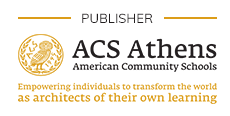ISJ November 2018: From Ancient Greece to Mayan temples to Arabian souqs; bringing music and mathematics alive through interdisciplinary learning
10,00€
Lynda Thompson and Francesco Banchini
Our schools have a responsibility to prepare our young people for their futures. However, in a rapidly changing climate, in terms of technology and social change, this is becoming increasingly challenging. How can we prepare for a world we cannot yet comprehend? Educationally our response has been to focus on the acquisition of skills which can be applied in a range of contexts, and one such way to concentrate this focus is through inter-disciplinary learning. Learning outcomes from interdisciplinary studies advance metacognitive skills and critical thinking and contribute to integration and assimilation of knowledge and skills, transferable to other contexts, issues or problems (Ivanitskaya et al, 2002). Integrated curricula and inter-disciplinary learning may aid individuals in coping with complex and multifaceted work environments (Jacobs, 1989). In addition, inter-disciplinary learning encourages learners to have greater responsibility and ownership for what they achieve (West-Burnham and Coates, 2015).



